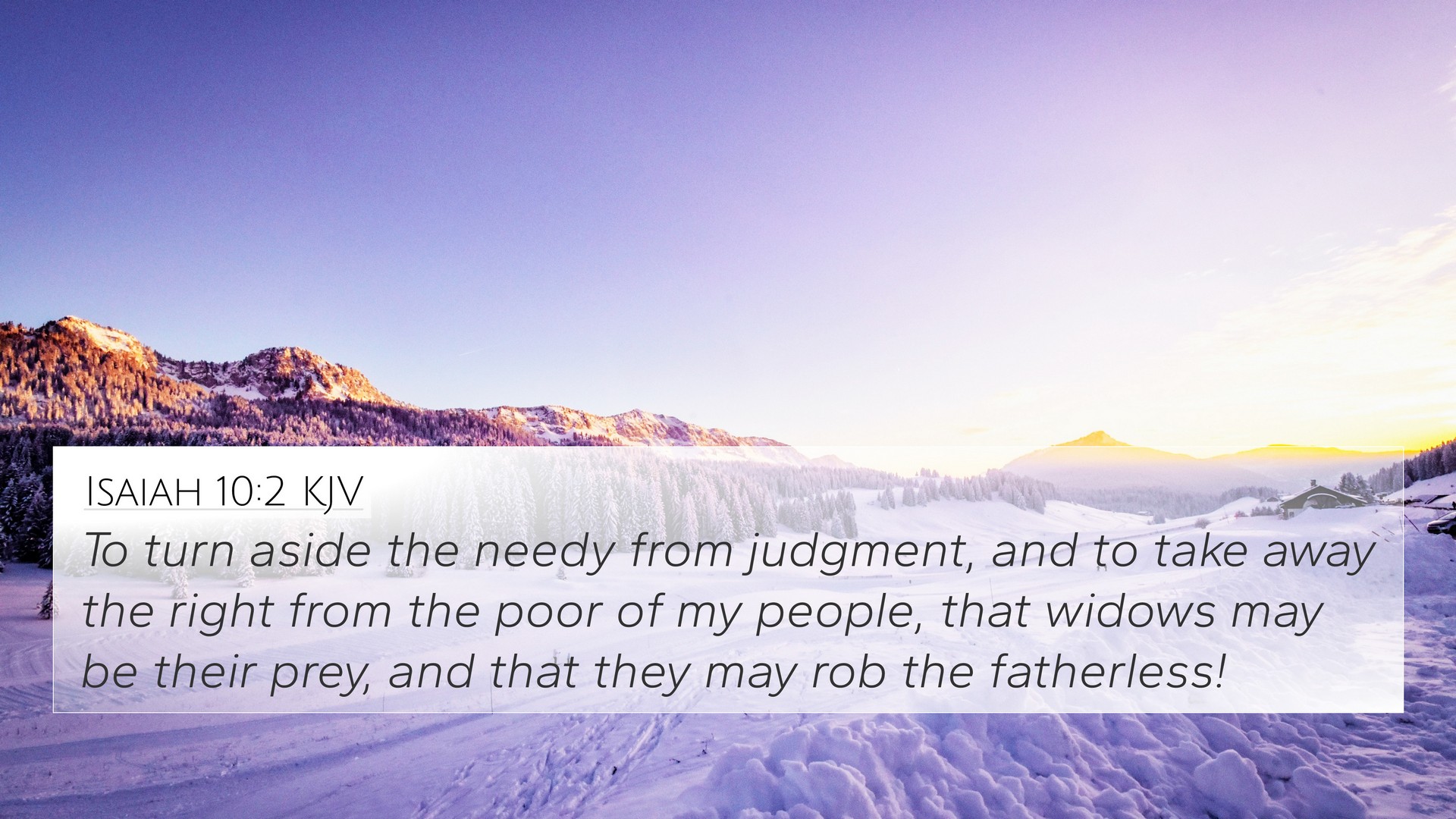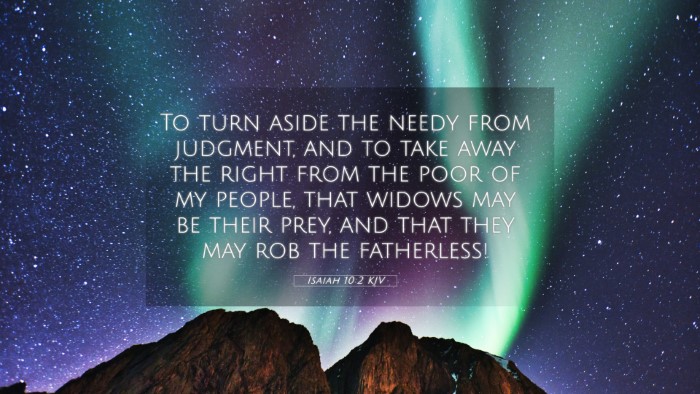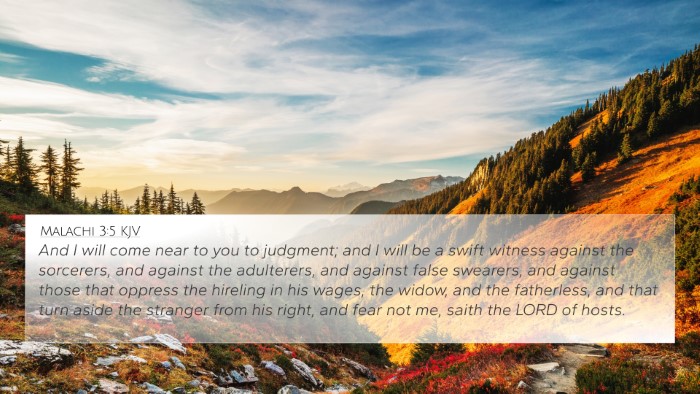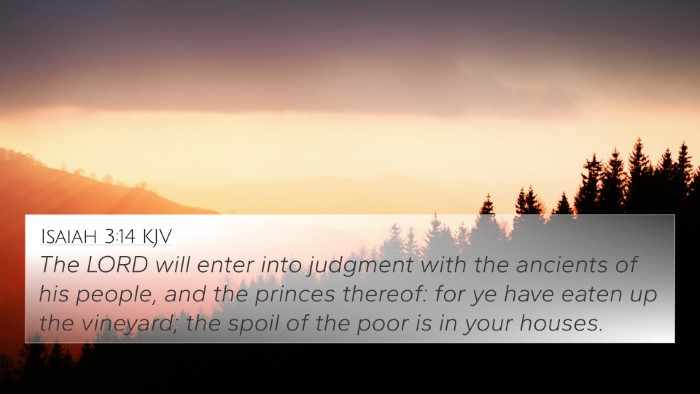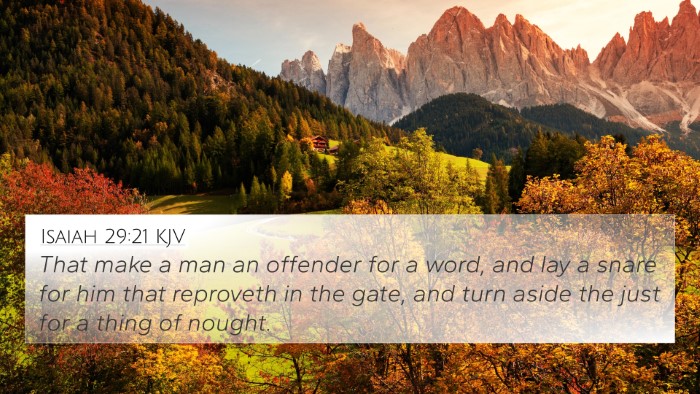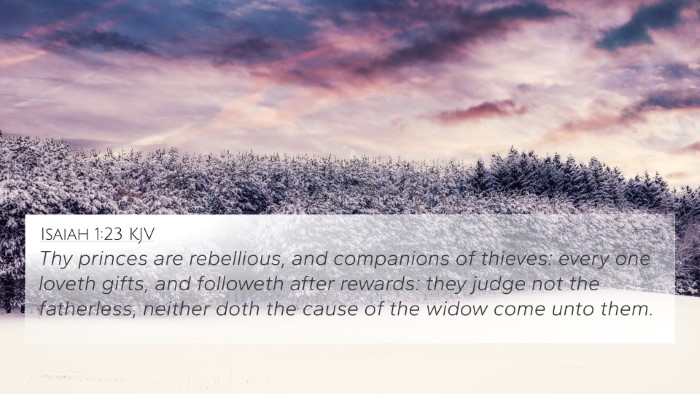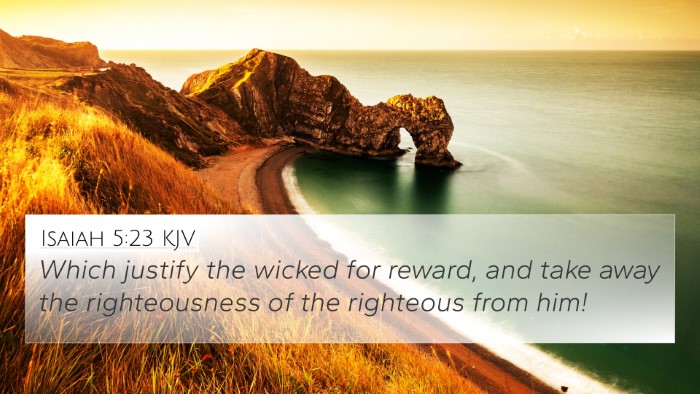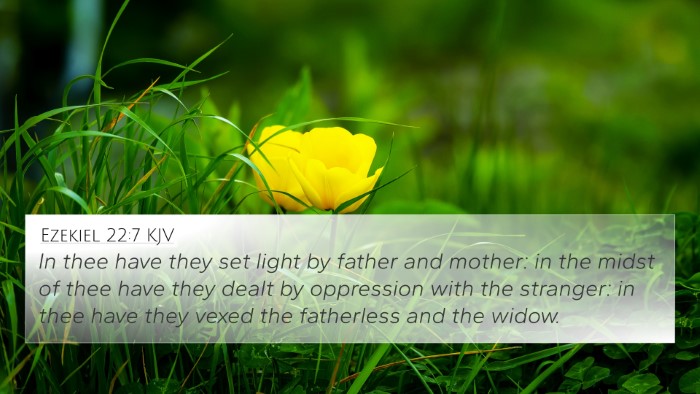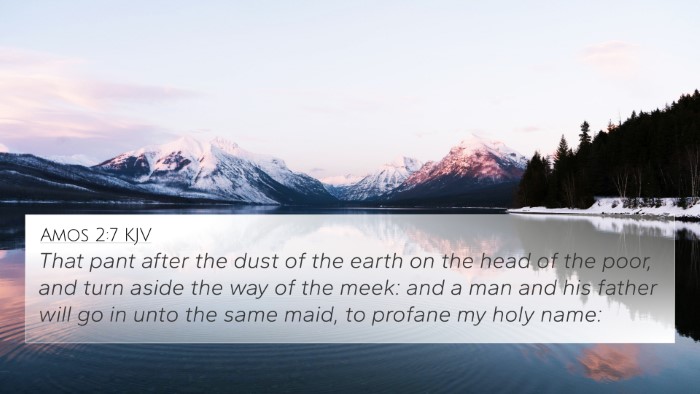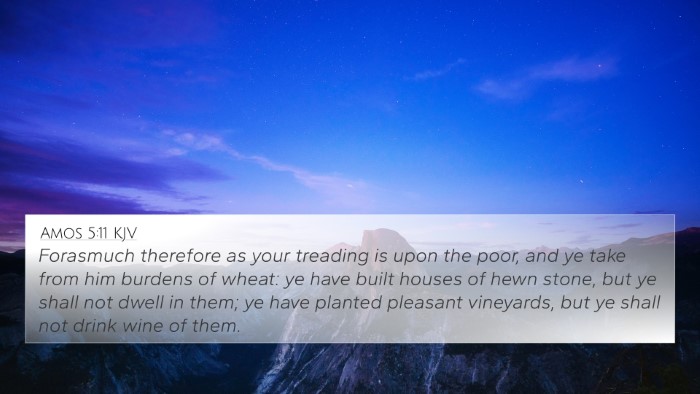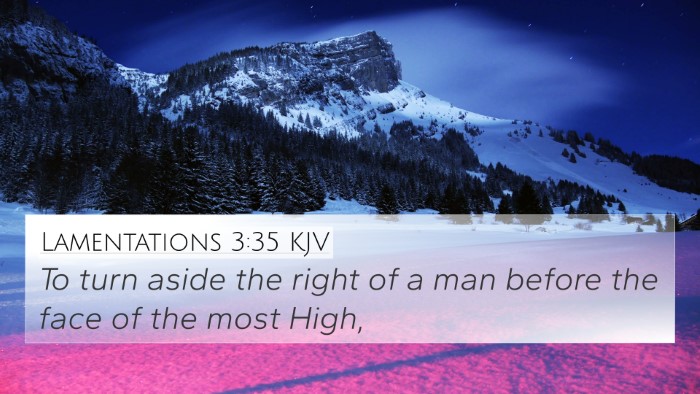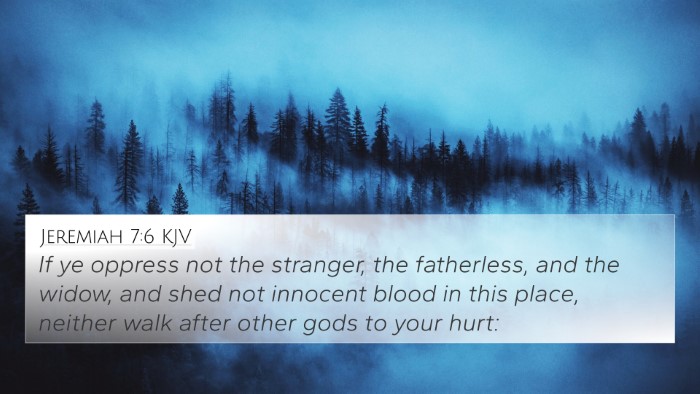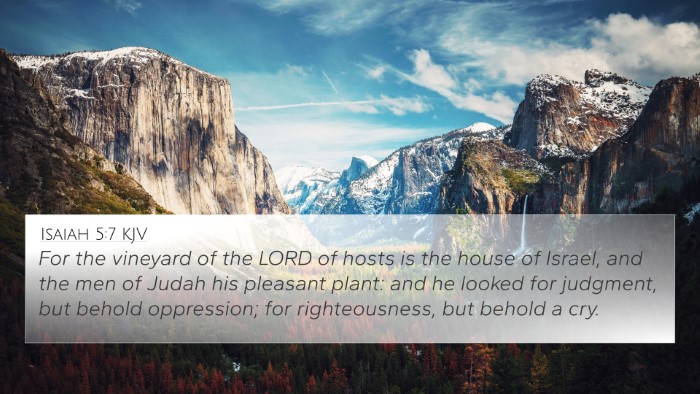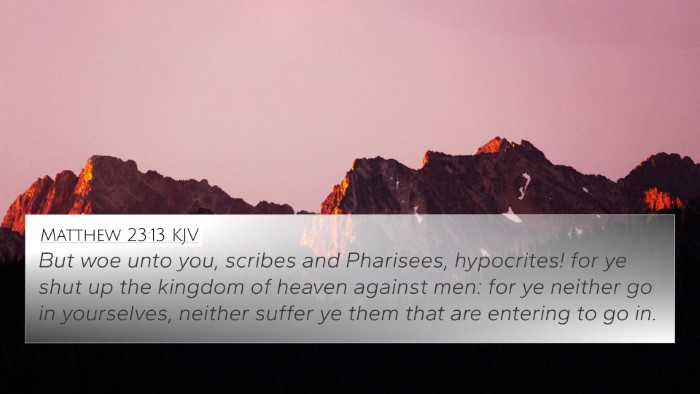Understanding Isaiah 10:2
Bible Verse: Isaiah 10:2
"To turn aside the needy from judgment, and to take away the right from the poor of my people, that widows may be their prey, and that they may rob the fatherless."
Meaning and Interpretation
The verse from Isaiah 10:2 speaks to the serious social injustices occurring in ancient Israel, where the powerful exploit the vulnerable.
This particular admonition highlights the actions of those in authority who distort justice and oppress the needy, specifically targeting widows and orphans, who are emblematic of society's most vulnerable members. In light of public domain commentary, we delve deeper into its implications:
-
Matthew Henry:
Henry notes that this verse critiques the leaders for denying justice to the needy, illustrating a moral decay among those responsible for administering justice. The reference to widows and orphans symbolizes the most defenseless individuals, reminding readers of their need for protection and the societal obligation to uphold their rights.
-
Albert Barnes:
Barnes emphasizes that the failure to judge fairly is a direct violation of God's law. This indicates not only the perversion of justice but also a broader spiritual decline. He highlights that leaders are to protect the weak, therefore; their failure contributes to national destruction and loss of divine favor.
-
Adam Clarke:
Clarke mentions that this scripture reflects a wider context of oppression and exploitation which persists through time. His commentary underlines God's disconnection with people who misuse their power, suggesting that divine judgment falls heavily on those who neglect the welfare of the innocent in favor of self-interest.
Cross-References
Isaiah 10:2 connects with several other scriptures that address themes of social justice and the treatment of the vulnerable. Here are key Bible cross-references:
- Exodus 22:22: "You shall not afflict any widow or fatherless child."
- Psalms 82:3: "Defend the poor and fatherless: do justice to the afflicted and needy."
- Proverbs 31:9: "Open your mouth, judge righteously, and plead the cause of the poor and needy."
- Jeremiah 22:3: "Thus says the Lord: 'Do justice and righteousness, and deliver the one who has been robbed from the power of his oppressor.'"
- Ezekiel 22:29: "The people of the land have practiced extortion and committed robbery; they have wronged the poor and needy and have oppressed the sojourner without justice."
- Zechariah 7:10: "Do not oppress the widow, the orphan, the sojourner, or the poor; and let none of you devise evil against another in your heart."
- James 1:27: "Religion that God our Father accepts as pure and faultless is this: to look after orphans and widows in their distress."
Thematic Connections
The primary theme in Isaiah 10:2 revolves around the societal obligation to protect the poor and defenseless. This is paralleled in various other Biblical texts which emphasize social justice and mercy:
- Justice and Mercy: The scriptures call for a reflection of God’s character in how justice is carried out.
- God's Heart for the Needy: Numerous verses illustrate God’s special concern for vulnerable groups, signifying a recurring Biblical principle.
- Responsibility of Leaders: The accountability of leaders is significant as reiterated in both the Old and New Testaments.
- God’s Judgment on Injustice: The consequences of neglecting the oppressed are portrayed as severe, as seen throughout prophetic literature.
Conclusion
Isaiah 10:2 is a profound reminder of the responsibilities that come with power and leadership. It warns against the exploitation of the weak and illustrates God's concern for justice as an integral component of righteous living. The connections with other scripture enhance the understanding of this verse, encouraging comprehensive Bible cross-reference studies that reveal thematic and moral insights throughout the Biblical narrative.
In studying such scriptures, one can appreciate the interconnectedness of God's commandments, the consistent theme of advocating for the poor, and the dire consequences of ignoring the injustices present in society.
